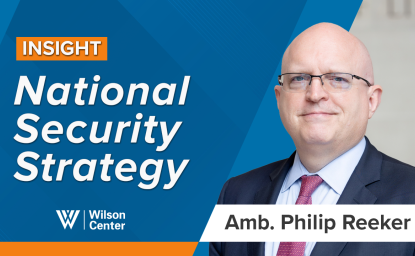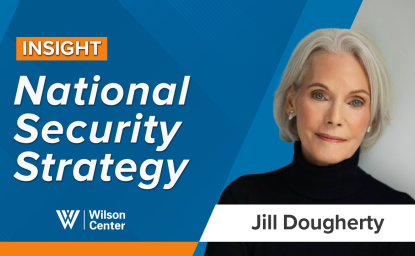A Dangerous Time in the Middle East
The situation in Lebanon is both dangerous and tragic. Former Congressman Lee Hamilton talks about how the United States can support peace in the short and long-term.
The situation in Lebanon is both dangerous and tragic. Former Congressman Lee Hamilton talks about how the United States can support peace in the short and long-term.
These are discouraging days in the Middle East. A six-decade long cycle of violence has entered a new phase, as Israel strikes back at Hizbollah in Lebanon. A region already troubled by rising violence in Iraq has become even more dangerous.
Two powerful and contending forces are in conflict in Lebanon: Israel's desire to destroy a terrorist threat on its border, and an Arab sense of injustice at Israel's actions. Israel has the right to defend itself, and the Hizbollah raid that started this escalation was certainly outrageous. But the effectiveness of a sustained Israeli campaign in Lebanon is questionable. Hizbollah is a diffuse and complicated group, and people across the Arab world are outraged by civilian casualties and the destruction of Lebanese infrastructure; in seeking to destroy Hizbollah, Israel may end up radicalizing more Arabs.
So what needs to be done? After all, it is unacceptable for Israelis to live with a terrorist enemy on their border, and it is unacceptable for hundreds of innocent Lebanese to be killed in a bombing campaign that is unlikely to achieve its objective of dismantling Hizbollah. To move forward, the U.S. must be aggressively engaged on behalf of both a short-term, and long-term, solution.
In the short-term, the U.S. must join with the rest of the world in pressing for an immediate cease-fire. We have complicated our diplomatic effort by trying to buy time for the Israeli offensive by calling for a cease-fire at some point in the future; already, too many innocent people have died, and it is dangerous to let violence carry on in such a volatile region.
The outlines of a cease-fire are fairly clear. Israel stops its offensive and Hizbollah pulls back from the Israeli border. The two captured Israeli soldiers are exchanged for some Lebanese prisoners held by Israel. A strong international force and the Lebanese army are deployed to southern Lebanon with a robust mandate to secure the border region. Hizbollah is disarmed and ceases its military operations. Meanwhile, pressure should be brought to bear on Iran and Syria to cease their military support for Hizbollah, including the threat of international sanctions.
Over the long-term, the United States needs to put forward a comprehensive agenda for Arab-Israeli peace. We and most of the world knows what peace requires: the dismantlement of any and all terrorist groups that threaten Israel; a Palestinian state in the West Bank and Gaza; compensation for Palestinian refugees; secure and internationally recognized Israeli borders; a Lebanese state that can control its own territory. This final peace cannot be achieved through provisional deals, stopgap measures, or unilateral action. All parties must move down the road toward peace at the same time, and they must be pressed – and assisted – by the U.S. and other international partners.
As we address the many problems in the region, the U.S. must be willing to talk to everyone. That means the Israelis, Lebanese and Palestinians, as well as allies like Egypt, Jordan, and Saudi Arabia. But it also means talking either directly or through third parties to people we don't like – Iran, Syria, Hizbollah representatives in the Lebanese government, and Hamas representatives in the Palestinian Authority. You cannot get things done by only talking to those who you like. Diplomacy is not appeasement; it is how you work things out in a complicated world. Because of the complexity of the issues, this diplomatic effort will take years, but if we are not engaged these problems will fester and explode at the slightest provocation.
In the Middle East, everything is connected to everything else. You cannot support Lebanese democracy while ignoring Hizbollah. You cannot focus on Iraq while ignoring the Israeli-Palestinian conflict. You cannot address Iran's nuclear program without addressing Iran's regional role. Each of these issues is a flashpoint with the potential to send the region over the brink. Each demands aggressive and sustained U.S. engagement, as our vital interests – and the peace and stability of the world – are at stake.
The Middle East will never be at peace as long as it can be ignited by one cross-border raid or rocket attack. To stop this endless suffering, the U.S. must actively press for a comprehensive peace between Arabs and Israelis. Otherwise, this region that has become so intertwined with American interests will know only more violence, and we will all be worse off.



